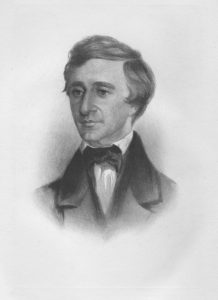2018-2019 Live Deliberately Essay Contest

Andrew Dewar, 16
Winner, 14-16 Age Group
Macedon, New York
I was twelve when I learned how to ride a bike. Late, I know. I was 14 when I shaved for the first time. I just got my learner’s permit to drive a month ago, at age 16. All these milestones have something in common: a person absent. A missing face. My father.
My father has been a victim of the disease of alcoholism for as long as I can remember. My mom, my brother, and I lived in constant fear of him until one day when I was nine she took us and fled for my grandmother’s house. Since then, my mother moved us into an apartment where I navigated the labyrinth of emotions that is middle school, and later into a house where we still live today, separated from my dad and thriving without him. When I was growing up, I never really thought about him much; my only interactions with him were through court-ordered visitations and shared phone calls with my mom. The only thoughts I did have of him were of apathy or of anger.
But what of my father? Where is he now? He is currently an inmate at Monroe County Jail, convicted for driving while intoxicated. Millions like him are incarcerated across the country on drug-related charges. Millions more, the families of addicts, are not behind bars but still locked in cells of their own, imprisoned by the pain that their loved one’s addiction has caused them.
The war on drugs of the 1970s and ‘80s was an utter failure. Since 1980, the percentage of Americans in the prison system has skyrocketed from .02 percent to .08 percent. I have very strong opinions about how drug scheduling and sentencing should change in this country. Addicts are not criminals; they are victims. Addiction of any kind is a disease and should be treated as such.
One day I was thinking about this and I faced a dilemma: what can I, a sixteen-year-old kid, do about the way addiction is portrayed in America? This question plagued me for a while and I became a bit depressed with the thought of not being able to do anything. Then, one day, while I was placing yet another stack of mail in the mail bin for my mother to read later, I noticed the abnormally large stack of letters marked “Monroe County Jail.” Not having much else to do, I opened them all and read them. That’s when I realized: here I was, going to school every day and living my life, wondering how I could do my part to destigmatize addiction, and meanwhile there was my father, sitting in a cold jail cell, writing letters to a family that wouldn’t answer.
I immediately found some paper and an envelope and started writing. The first letter I wrote ended up being five pages long, including pictures of my brother and me in the envelope. To cultivate a world of treatment and forgiveness for addicts I needed to grade the ground first and cultivate a relationship with my father.
I’m not sure whether my father will ever overcome his addiction. But giving him all the love I can give is the greatest thing I can do to try to help. And so is the way the world should treat all addicts: not with punishment or pity, but with decriminalization, rehabilitation, and, above all, love.

